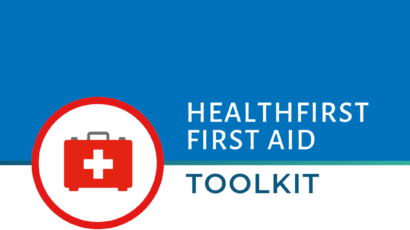March 8th 2023 is International Women’s Day. The theme for 2023 is #EmbraceEquity with equity in women’s health being one of the key missions: assisting women to be in a position of power to make informed decisions about all things health related. Raising awareness of the menopause is key.
One of the biggest health-related challenges that women face is the menopause – getting through and dealing with ‘the change’. Forgive the pun, but menopause is a ‘hot’ topic right now. More and more women are speaking out to break the taboo around the subject, raising awareness about what is going on during this significant period of their lives – particularly important for partners and employers.
Most women go through the menopause somewhere between the ages of 45 and 55. Menopause literally means the ‘ceasing of menstruation’, but periods don’t just stop overnight. They usually start to become less frequent over a few months or years before they stop altogether, and this transition period is known as the ‘perimenopause’. A natural part of aging, it’s during the perimenopause that levels of oestrogen, progesterone and testosterone hormones fluctuate and eventually fall, and it’s the imbalance of these hormones that affects a woman’s health and well-being.
Not just hot flushes and mood swings
Menopause is much more than just hot flushes and mood swings. Untreated, it can lead to a wide range of disabling symptoms affecting both physical and mental health. 60% of women will experience menopause-related symptoms, with 20% experiencing symptoms that significantly impact their quality of life. The list is long, with hot flushes, night sweats, mood swings, and aches and pains being amongst the most well-known. All of these can lead to poor sleep. But even women who sleep well find themselves feeling more tired, and fatigue can be one of the most debilitating symptoms of all.
Many women also notice changes in their skin and hair. Oestrogen helps to maintain collagen, important for healthy skin. When levels drop, skin can become dry and itchy and fine lines appear, sometimes with spots and acne. Collagen is also important for healthy hair, so hair can become thinner and less shiny. At the same time unwanted new hair may appear on the face.
On top of that, oestrogen helps to maintain the vagina and urinary tract. Changing levels results in dryness, itching and inflammation in this region, which may cause pain and discomfort during sex. Thinning of the bladder makes it more sensitive to developing infections and many women find they need to pass urine more often. In the longer term, low levels of oestrogen are associated with osteoporosis (thinning of the bones) and an increased risk of fractures. Oestrogen also protects the blood vessels and helps to keep levels of cholesterol under control, so changes here increase the risk of heart disease and stroke.
Mental, as well as physical, health symptoms
The physical symptoms of menopause are generally more well-known, but many women also struggle with their mental health. Oestrogen helps to regulate the mood-boosting hormones serotonin and dopamine, and when oestrogen levels fluctuate during the perimenopause, mood can be impacted. It also helps to sharpen thinking skills and so as oestrogen declines, it can lead to forgetfulness and ‘brain fog’.
At the same time, falling progesterone levels lead to irritability, mood swings and more ‘brain fog’. And as ovarian function declines, testosterone levels drop as well. This can affect mental stamina, sleep, thought clarity and concentration with knock on effects on stress levels and general well-being. Declining testosterone levels also impact sex drive.
As a result of these changes, more than 50% of perimenopausal women report increased feelings of low mood and anxiety. For some, fluctuating hormone levels can lead to intrusive thoughts, and sometimes these may include thoughts of suicide. The most common time of life for women to end their life by suicide is between the ages of 45-54. Of course, the reasons behind suicide are complex but it’s fair to say that changes in hormone levels are likely to be one of the contributing factors in this female age group.
Reduced motivation
Women frequently find that they have reduced motivation, drive and energy levels – particularly mental energy – and even activities that they previously enjoyed doing may provide little pleasure. Changes in weight, the appearance of wrinkles, and hair loss may impact how a woman views herself. Add to this the loss of libido many experience, and a woman’s sense of sexuality can be impacted. All contributing to a loss of confidence, self-worth, self-value, and self-esteem for many.
There can also be an impact on relationships. Mood changes making a woman irritable may mean others become wary of being on the receiving end of this.
Impacting the workplace
Lack of motivation and drive can affect work performance for some women. In fact, a statistic from the UK, where women make up nearly half of the workforce, is that around 1 in 10 women have quit their job because of the menopause.1
With menopausal women an expanding demographic in the workforce, it again raises the importance of employers understanding the impact of menopause and supporting those employees going through it, not forgetting that transgender men, non-binary, and gender fluid employees can be also impacted.
So, what can be done about all of this?
If you are struggling with symptoms of menopause, there are a few things that you may like to consider helping you through ‘the change’.
1. Start with good self-care:
Prioritise sleep, physical activity and eat a healthy balanced diet. These are the cornerstones to good physical and mental health in general. In the perimenopause, ensuring a diet rich in calcium can help to protect bones. Exercise is also important. We advocate that we should all ‘move more’ and ‘move faster’, but in addition, that we should ‘move stronger’. Maintaining muscle strength is especially important in menopause and it also helps to protect bones.
Think about those unhealthy habits: limit alcohol and quit smoking. Alcohol wreaks havoc with sleep and can make those night sweats even worse. Vitamin D is important both for bone health and the immune system. Sunlight is a good source, but taking a supplement can boost this further. Finding ways to relax by doing something you enjoy can help to reduce stress levels and lift mood. And take advantage of the power of human connection. Spending time with people who matter can increase the ‘happy’ hormones and help you to feel better.
2. Think about topping up hormones:
If symptoms are really causing problems, hormone replacement therapy (HRT) can help. There has been so much bad press about HRT over the years – particularly concerns over an increased risk of breast cancer. However, what we know now is that there is no increased risk of breast cancer for the first 5 years when taking combined HRT using micronized progesterone (that’s progesterone that is chemically and structurally identical to human progesterone) in conjunction with oestrogen delivered via a patch or gel.2
HRT?
We also know that HRT improves menopausal symptoms, reduces the risk of osteoporosis and cardiovascular disease (including vascular dementia) and also reduces the risk of type 2 diabetes, osteoarthritis, bowel cancer and depression.
Of course, HRT isn’t for everyone – some people are not able to take it – so it is always best to have an individualised discussion with your doctor about your personal situation.
3. Try the talking therapies:
For many, the psychological therapies like cognitive behavioural therapy (CBT) and counselling can help with the mental health changes of the menopause and perimenopause.
4. Non-hormonal medication:
There are various drugs that can be tried to treat hot flushes if a woman is unable to take, or doesn’t want to take, HRT. Gabapentin and pregabalin are examples but for some, these can have side effects including dizziness and weight gain. Once more, it is best to discuss with your doctor about your personal situation.
Antidepressants?
Just a note about antidepressants here: low mood, lack of motivation and sleep problems can be the first reason why a woman goes to see her doctor around the time of the menopause. Doctors often diagnose depression and prescribe antidepressants but actually there is no evidence that antidepressants improve the psychological symptoms of the menopause – HRT is going to be best for these.
5. What about herbal remedies?
There are some like St John’s Wort that we know improve mood but again, they’re not addressing the root cause of the problem – the low hormone levels. Other practices like aromatherapy and acupuncture may be beneficial for general relaxation and well-being and some women find that they have some symptom relief from these.
6.Raise awareness in the workplace around the effects of the menopause:
Talk about the symptoms of the menopause and how menopause can affect the way women feel. If people know that during the perimenopause, women may struggle with low mood or anxiety and reduced energy levels, this can help their understanding. Let’s remember that the menopause is not a disease, it is a natural process that all women must go through!
Dr Mecky McNeil is a British-qualified General Practitioner, a specialist in GP Cardiology and experienced in looking after adults and children with psychiatric illnesses and caring for suicidal and acutely psychotic patients.
She is a qualified health coach and helped to develop the ensa Mental Health First Aid English courses in Switzerland. In 2022, she completed her performance coaching certification with Hintsa Performance.
Mecky currently collaborates with UNICEF and Z Zurich Foundation on a global project aimed at supporting young people’s mental health.
References
- The Menopause and the Workplace Report by the Fawcett Society and Channel 4: https://www.fawcettsociety.org.uk/menopauseandtheworkplace
- Breast Cancer and HRT Factsheet, February 2022 update: https://www.balance-menopause.com/menopause-library/breast-cancer-and-hrt-factsheet/





